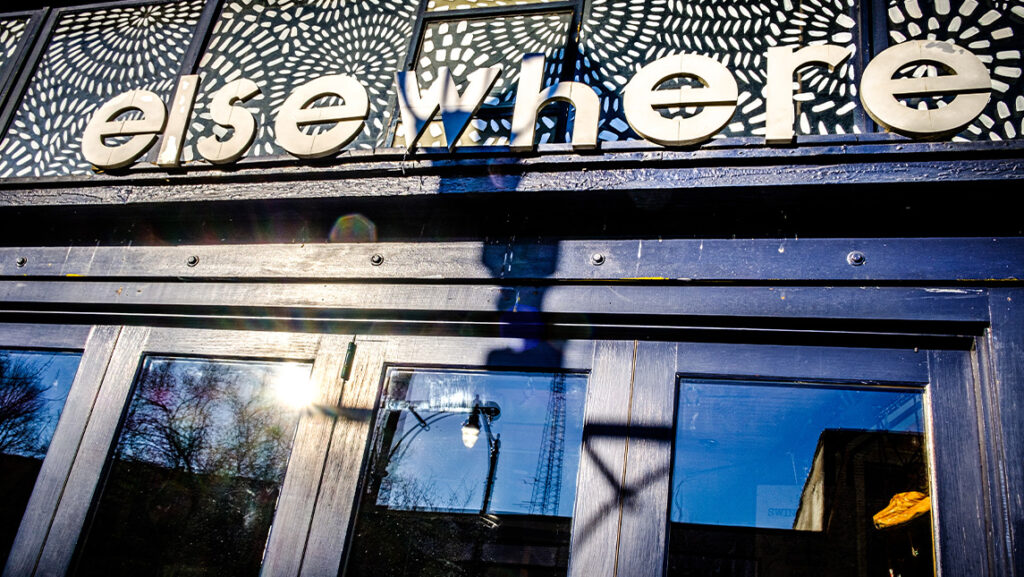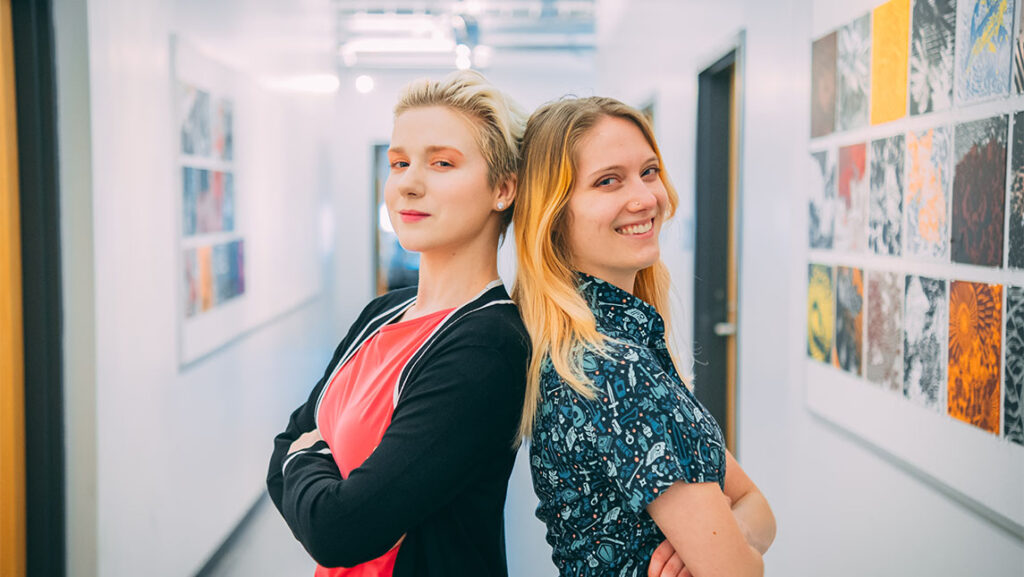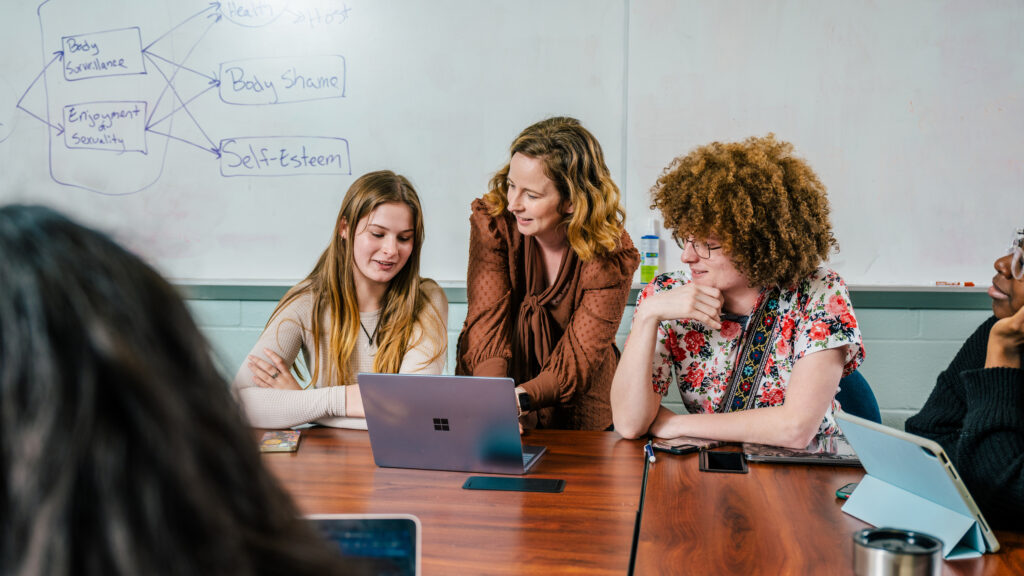There are no upcoming events at this time.
Students
Is this for me?
Students from all disciplines – from anthropology, history, design, and English to physics, microbiology, and turf grass management – can engage in the excitement of scholarly inquiry. Not sure what you want to do? Career plans not-so-researchy? Even if the career you choose doesn’t require it, undergraduate research helps you build skills that turn into advantages in any workplace.
What does “research” mean?
When we talk about “undergraduate research,” we mean scholarly study in any discipline where inquiry, discovery, and creativity culminate in advancements in science, technology, the arts, or humanities. In the classroom, you learn about the current state of knowledge in a field – now start creating new knowledge through research and creative inquiry.
Getting started
Talk to a professor
Our faculty are teacher-scholars dedicated to student learning. Many students reach out directly to professors in their fields of interest to ask if they offer independent study or mentorship opportunities in their labs, offices, or studios.
ursco advising
Read advice from the URSCO director on getting your foot in the lab door
Transcript recognition & honor cords
Learn how UNCG recognizes undergraduates participating in research
FAQs
Develop marketable skills
Undergraduate research teaches college students the process of developing creative ideas, formulating methods to execute research, and presenting the outcome to the intended community. The skills learned through undergraduate research enable college students to develop and adapt to new ideas and pursue them in a systematic way.
The ability to communicate, both in written and verbal form, enhances the overall effectiveness of the individual and helps make her/him successful in the workplace. Effective communication, presentation, and problem-solving skills are now essential in nearly all fields of practice. The job market is continuously evolving as employers try to be efficient and do more with less. Technology’s rapid advancement has changed the workplace landscape, resulting in a demand for more efficient, knowledgeable, and perceptive personnel. Undergraduate research directly translates to the workplace and enables college students with skills to be ahead of the curve.
Create new knowledge
When you participate in undergraduate research, you have the opportunity to broaden our understanding of the world. Universities are designed to be a place for the dissemination of knowledge, as well as a place to inspire new ideas, investigate problems and solutions, and create new expressions of humanity. Undergraduates can be an important part of teams working toward these aspirations. Because of their fresh and unbiased look at new ideas, undergraduate students often strengthen the team and can positively influence the direction of research and/or creativity.
Join a community
The exposure of many students to the university setting is often limited to attending classes and, occasionally, meeting with an advisor. Undergraduates involved in research and/or creative inquiry interact more closely and frequently with faculty mentors and other researchers on campus. The improved sense of belonging and accomplishment enriches the educational experience of the student and provides opportunities to explore potential career paths.
Research is conducted differently across disciplines. As an undergraduate researcher, you may find yourself in the library, the field, the laboratory, or even the art or music studio.
Most faculty members are willing to take any enthused, hardworking and dedicated student.
Some expect that you have completed certain courses or surpassed a certain GPA.
Some faculty members have grants that can be used to pay student researchers. You can also work with a faculty member to apply for a UNCG Undergraduate Research and Creativity Award to fund your work.
If you don’t get paid, you might be able to earn academic credit for your work by enrolling in an independent study.
Stellar GPAs and GRE scores are important, but today the importance of a student’s own undergraduate research project is a significant contributing factor to acceptance into, and success in, graduate school.
There are many skills you are likely to improve as you work on a research project: thinking independently, writing, working with others, synthesizing information, creating new knowledge and organizational skills. All of these are valued by employers. Employers look for students who took advantage of a variety of learning opportunities and who demonstrated they were successful at them.
Our invitation-only Undergraduate Research Fellows Program is tailored for new students who are eager to explore the world of research and become scholars in their fields. As a Research Fellow, you’ll be part of a dynamic community that fosters academic excellence and intellectual growth. Embrace the chance to embark on a journey of discovery, networking, and personal development to unlock a world of possibilities and shape a successful future in your chosen field of study.
Workshops and programs for students
See all workshops and programs for current and aspiring undergraduate researchers
| Date | Time | Workshop | Description |
| Wed, 1-24 | 4:00pm- 5:00pm | Exploring Undergraduate Research And Creativity (EURC) | EURC is designed to help undergraduate students understand how to get involved in research and creative inquiry while at UNCG. The session will also cover some of the options for support that are available through the URSCO and the Lloyd International Honors College. |
| Tues, 2-06 | 2:00pm- 3:00pm | How to write an Abstract | Learn how to write a brief, well-written abstract about your research/creative inquiry. |
| Tues, 2-06 | 4:00pm- 5:00pm | Exploring Undergraduate Research And Creativity (EURC) | EURC is designed to help undergraduate students understand how to get involved in research and creative inquiry while at UNCG. The session will also cover some of the options for support that are available through the URSCO and the Lloyd International Honors College. |
| Wed, 2-07 | 4:00pm – 5:00pm | How to write an Abstract | Learn how to write a brief, well-written abstract about your research/creative inquiry. |
| Mon, 3-11 | 4:00pm-5:00pm | Personal & Professional Statements | Learn how to prepare Personal and Professional Statements for graduate school and/or grant/scholarship applications. |
| Mon, 3-25 | 4:00pm – 5:00pm | Presenting Research | Learn tips and strategies for presenting your research effectively. |
| Tues, 3-26 | 3:30pm – 4:30pm | Goldwater Scholarship | Learn about the Goldwater Scholarships and other prestigious awards programs so that you will have time to begin the application process well in advance. |
| Wed, 4-17 | 4:00pm – 5:00pm | Entering Research | Students will prepare to get the most out of their research/creative inquiry experience. |
Other resources for students
- Virtual Presentation Tips
- Virtual Presentation Tips: Workshop Video
- How to Create an Effective Poster Presentation
- How to Create an Effective Poster Presentation: PowerPoint
- Analytical Sciences Digital Library
- Council on Undergraduate Research (CUR)
- Council on Undergraduate Research – Internship and Research Opportunities
- Creating Effective Abstracts
- Explorations: The State of North Carolina Undergraduate Research Journal
- Guidelines to help develop Abstracts and Summaries
- SPIN – database for sponsored funding opportunities
- State of North Carolina Undergraduate Research and Creativity Symposium (SNCURCS)
- WebGuru – Guide to Research for Undergraduates
Explore stories of student research & creative inquiry


